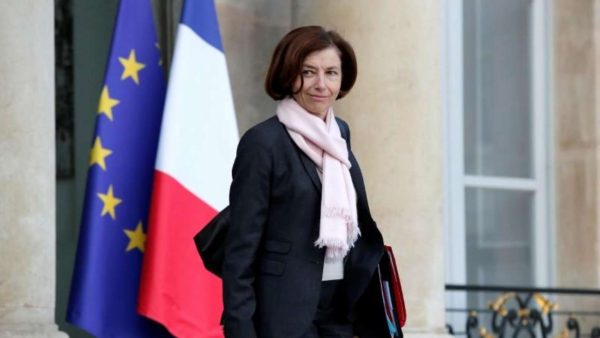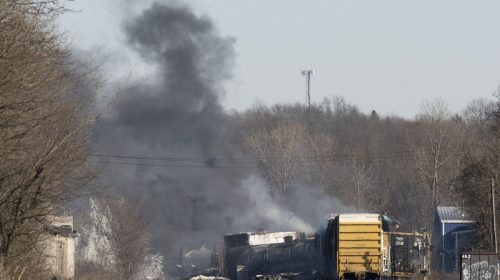France’s defense minister says French military forces fighting Islamic extremists in West Africa “put away” more than 50 jihadists in a recent operation in Mali.
France’s defense minister says French military forces fighting Islamic extremists in West Africa “put away” more than 50 jihadists in a recent operation in Mali. Defense Minister Florence Parly tweeted Monday night that the French force in the region, called Barkhane, also confiscated weapons and equipment from the fighters in the operation last Friday, which she said “shows once again that terrorist groups cannot act with impunity.”The offensive took place on Friday near the borders of Burkina Faso and Niger, where government troops are struggling to rout an Islamic insurgency, French Defence Minister said.

Parly is currently visiting Mali’s capital Bamako, where she met with the head of the transitional government. After Mali’s president was ousted in August by a military junta, she urged democratic elections “as quickly as possible” and said the current leadership promised to ensure them. France, which has suffered repeated deadly Islamic extremist attacks, has thousands of forces in West Africa to help fight extremist groups there.
Islamic extremist rebels were forced from power in northern Mali after a 2013 French-led military operation, but regrouped in the desert and now launch frequent attacks on the Malian army and its allies. Meanwhile, Mali has faced months of political upheaval. Under international pressure, the junta appointed a civilian-led government to lead the country through an 18-month transition period to new elections.
The offensive took place on Friday in an area near the borders of Burkina Faso and Niger, where government troops are struggling to rout an Islamic insurgency, French Defence Minister Florence Parly said after meeting members of Mali’s transitional government.
“On October 30 in Mali, the Barkhane force conducted an operation that neutralised more than 50 jihadists and confiscated arms and material,” Parly said, referring to the French-led anti-jihadist Operation Barkhane.
She added that around 30 motorcycles were destroyed.
Parly, who earlier met Niger President Mahamadou Issoufou and her Nigerien counterpart Issoufou Katambe before heading to Bamako, said the operation was launched after a drone detected a “very large” motorcycle caravan in the “three borders” area.
When the jihadists moved under trees to try and escape surveillance, the French force sent in two Mirage jets and a drone to launch missiles, leading to the “neutralisation” of the insurgents, Parly said.
Military spokesman Colonel Frederic Barbry said that “four terrorists have been captured”.
Explosives and a suicide vest had been found, he told a reporters in a conference call, saying that the group had been “about to attack (an army) position in the region”.
Barbry also said that another operation, this time targeting the Islamic State in the Greater Sahara, was also underway, with a total of 3,000 soldiers.
The results of the operation, launched about a month ago, would be announced in the coming days, he said.
Significant blow
Parly said the action marked a “significant blow” to the Ansarul Islam group which she said was linked to Al-Qaeda via the GSIM alliance led by Iyad Ag Ghaly.
Ghaly has emerged as a top jihadist leader in the Sahel since the death of the Qaeda commander Abdelmalek Droukdel, who was killed by French forces in Mali in June.
The United Nations has some 13,000 troops deployed in Mali as part of its peacekeeping mission, known as MINUSMA, while France has 5,100 deployed in the Sahel region.
Mali has been struggling to contain a brutal jihadist insurgency which first emerged in the north of the country in 2012, overtaking a rebellion by mostly ethnic Tuareg separatists.
Former colonial power France launched a military operation to drive back the Islamists in 2013, but fighting has spread to central Mali, and to neighbouring Burkina Faso and Niger, leaving thousands dead and hundreds of thousands forced to flee their homes.
Vast swathes of Mali lie outside effective government control. Frustration over the seemingly endless conflict contributed to mass protests against president Ibrahim Boubacar Keita this year, culminating in his ousting in a military coup on August 18.
Many analysts argue that engaging in dialogue with jihadists is one of the few escape routes from Mali’s cycle of violence, and government leaders in Bamako increasingly view the option favourably.
Mali’s new interim government, which was appointed to rule for 18 months before staging elections, appears willing to engage in dialogue.




